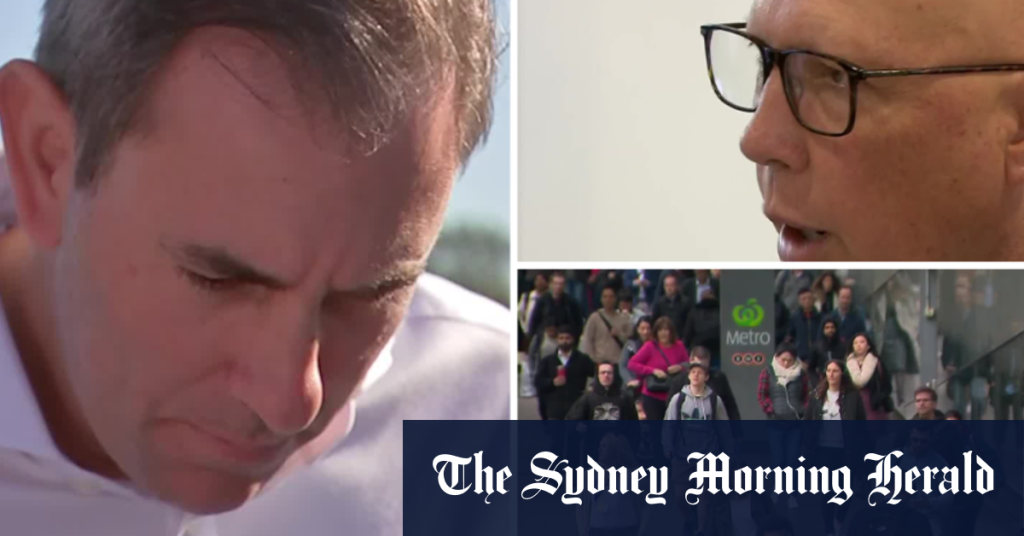Post-budget bickering between the federal government and opposition continues as tensions rise over Peter Dutton’s plans to cut migration. The ongoing disputes have taken center stage following the recent budget announcement, further fueling the divide between the two political parties. The opposition has criticized Dutton’s proposal, stating it will have negative impacts on the economy and social fabric of the country. The government, on the other hand, defends the decision, arguing that reducing migration levels is necessary for managing population growth and addressing issues such as infrastructure strain and job competition.
The disagreements between the government and opposition demonstrate the deep-rooted differences in perspectives on key policy issues. The clash over migration levels reflects broader debates on immigration policies and their implications for the nation’s future. While the government believes that reducing migration is a strategic move to alleviate pressures on various sectors, including housing and employment, the opposition remains skeptical about the potential consequences of such measures. The ongoing bickering highlights the challenges of finding common ground on complex issues and reaching consensus on effective policy solutions.
The post-budget bickering is symptomatic of the larger political landscape, characterized by recurring conflicts and disagreements among policymakers. The budget announcement has reignited longstanding tensions between the government and opposition, further complicating efforts to address pressing issues facing the nation. As both sides continue to trade barbs and critiques, the prospects for constructive dialogue and collaboration appear bleak. The rhetoric and finger-pointing only serve to deepen divisions and hinder progress on meaningful policy reforms that could benefit the country as a whole.
The debate over Peter Dutton’s migration plans has sparked intense scrutiny and debate within political circles and the public sphere. The proposed cuts to migration levels have elicited strong reactions from various stakeholders, with proponents and opponents presenting compelling arguments to support their positions. The government’s stance on reducing migration as a means of addressing population growth and infrastructure challenges clashes with the opposition’s concerns about the impact on economic growth and social cohesion. The clash underscores the complex nature of immigration policy and the importance of thorough analysis and thoughtful decision-making.
The continued bickering between the government and opposition has implications beyond the realm of immigration policy, affecting broader governance and public discourse. The post-budget disputes highlight the challenges of effective policymaking in a polarized political environment, where ideological differences often overshadow pragmatic solutions. As the debate rages on, there is a growing sense of disillusionment among citizens who are looking for leadership and cooperation in addressing critical issues facing the nation. The inability of policymakers to transcend partisan divides and work towards common goals raises questions about the effectiveness of the current political system in delivering meaningful outcomes for the country.
In conclusion, the post-budget bickering between the federal government and opposition reflects the deep-seated divisions and challenges in Australian politics. The ongoing disputes over Peter Dutton’s migration plans underscore the complexities of immigration policy and the divergent views on how to manage population growth and economic development. As policymakers continue to trade barbs and criticisms, the prospects for constructive dialogue and collaboration appear dim, hindering progress on critical policy reforms. The need for bipartisan cooperation and pragmatic decision-making is more urgent than ever, as Australia grapples with complex issues that require coordinated and thoughtful solutions.













